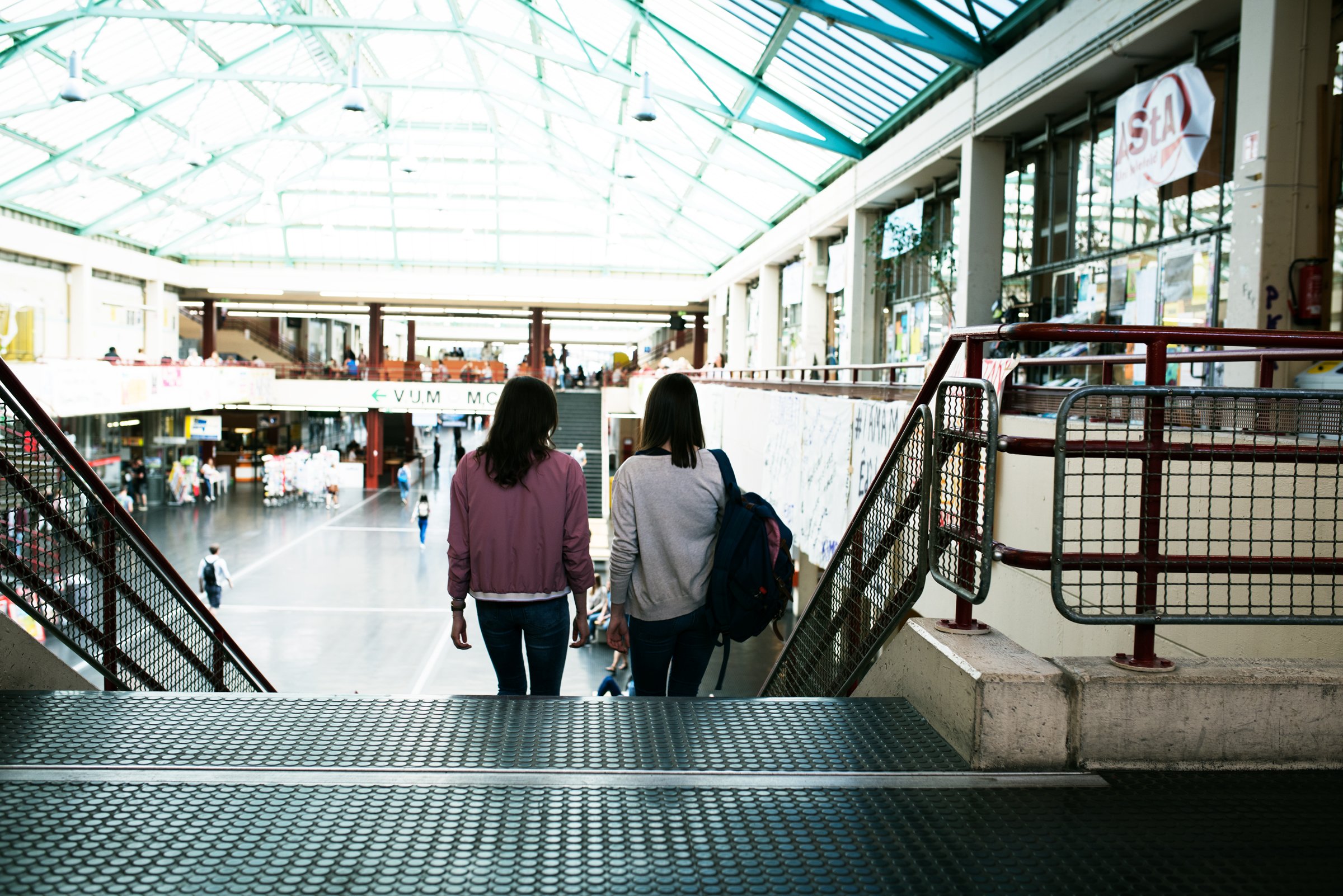Seeing the World through Assistive Glasses
Researchers at the Cluster of Excellence are developing a new mobile assistance system
A new research project at the Cluster of Excellence Cognitive Interactive Technology (CITEC) in Bielefeld University focuses on the development of a mobile adaptive assistance system in the form of intelligent glasses that provide unobtrusive and intuitive support in everyday situations. The technology platform is being provided by eye tracking specialist SensoMotoric Instruments (SMI) (www.smivision.com). The system will be able to identify problems in actual action processes, to react when mistakes are made, as well as to display situation and context dependent assistance in textual, visual or avatar based formats superimposed on a transparent virtual plane in the users’ field of view. The project is called ADAMAAS, which stands for “Adaptive and Mobile Action Assistance in Daily Living Activities.” The German Federal Ministry for Education and Research is funding the project with 1.2 million Euro.
“In this project, different technologies are being combined, including memory research, eye tracking and vital parameter measurements (such as pulse or heart rate), object and action recognition (Computer Vision), as well as Augmented Reality (AR) with modern diagnostics and corrective intervention techniques,” explains CITEC researcher Thomas Schack. Augmented reality is a kind of expanded or enhanced reality. For example, adding a diagram, a video clip, or an image to a real situation enhances or augments that reality. For the viewer, it then looks as if the virtual objects move into their line of vision.
The goal of ADAMAAS is to get from a stationary diagnostic system to a mobile, dynamical- adaptive action support and monitoring system which is able to react to failures, to provide individualized prompting feedback for action support and to learn from experts on one hand and about the individual behavior of the user on the other hand. This distinguishes it from conventional head-mounted displays.
Along with external partners, a number of different faculties from Bielefeld University are working together in the ADAMAAS project. In addition to CITEC members Professor Dr. Thomas Schack (Neurocognition and Action – Biomechanics), Professor Dr. Helge Ritter (Neuroinformatics Group), Dr.-Ing. Sven Wachsmuth (Central Lab Facilities), and Dr. Kai Essig (Neurocognition and Action – Biomechanics), the Faculty of Psychology and Sports Science as well as the Faculty of Technology and the initiative Bielefeld 2000plus Research Projects for the Region are also participating in the project. Furthermore, the Institute for Technological Innovation, Market Research, and Entrepreneurship (iTIME), associated to the Faculty of Busi-ness Administration and Economics will provide advice in economic matters, conduct market analysis and prepare a marketing concept for the product.
The v. Bodelschwingh Foundation Bethel, particularly proWerk Bethel and Altenhilfe Bethel, will bring their know-how in diagnostics, action assistance, and inclusion to the project. The Foundation’s strength in providing care for the elderly and handicapped, as well as in integrating disabled people into the workforce makes for an optimal research setting.
The Velamed GmbH - science in motion is developing an efficient, durable system for recording vital data. Finally, Hettich Holding GmbH & Co. oHG, a further project partner, will evaluate the AR-Eyetracking Glasses in the context of the acquisition and support in a complex assembly process.
Further information is available online at:
www.uni-bielefeld.de/sport/arbeitsbereiche/ab_ii/research/adamaas.html
Contact:
Professor Dr. Thomas Schack, Bielefeld University
Coordinator, Neurocognition and Action – Biomechanics Working Group (CITEC)
Telefon: 0175/ 5764791
E-Mail: thomas.schack@uni-bielefeld.de
Contact
Universität Bielefeld
Medien & News
Postfach 10 01 31
33501 Bielefeld
E-Mail:
medien@uni-bielefeld.de
